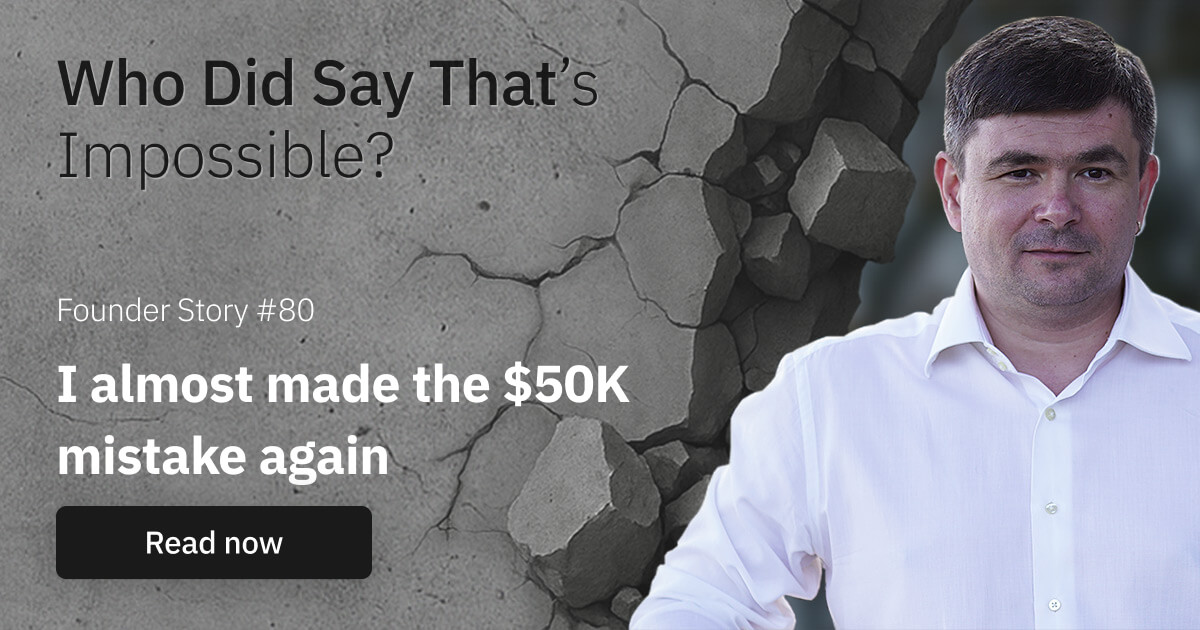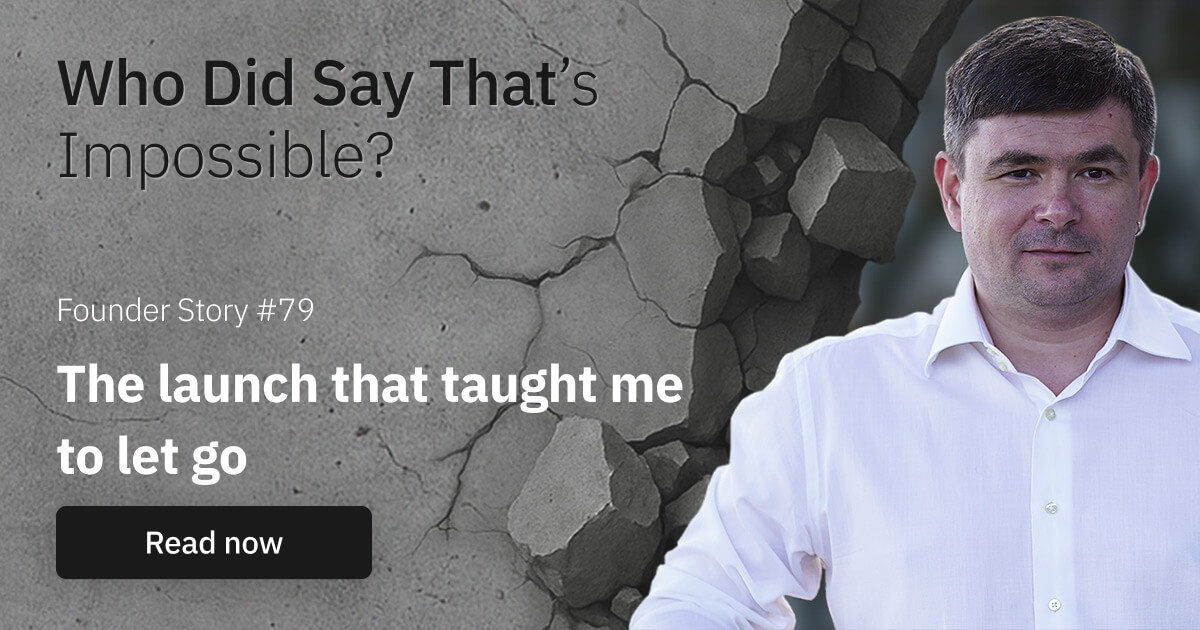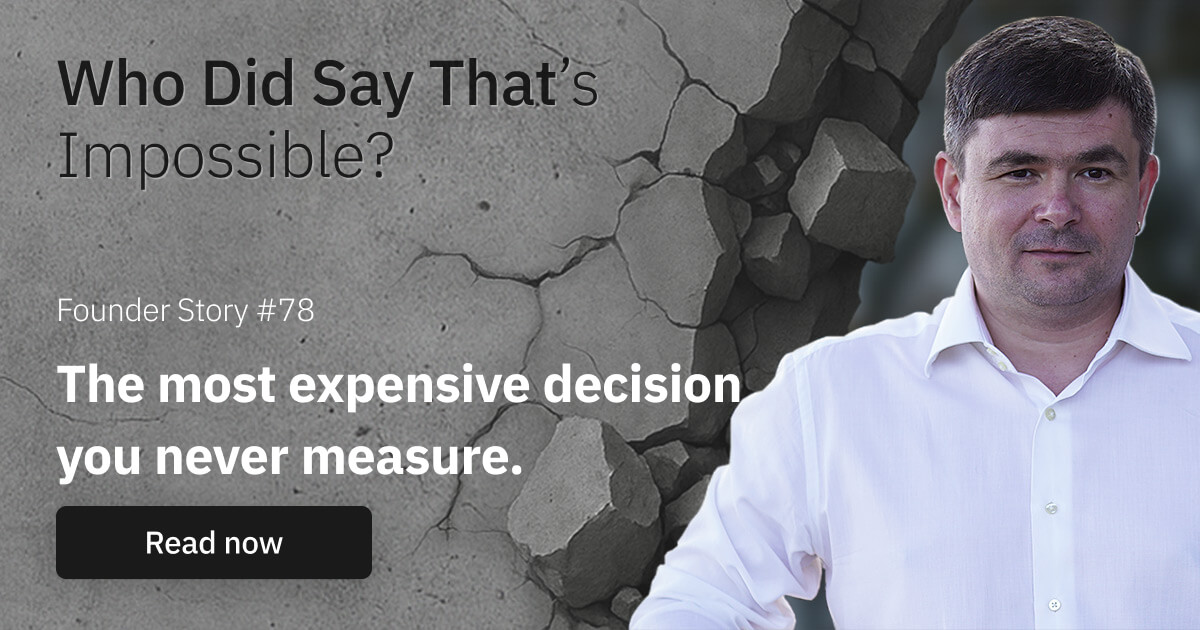The storm every founder faces
Or minute of realizing your emergency is by design
I used to think I was just “bad at handling stress.”
That the constant exhaustion, the sleepless nights, the anxiety — were personal flaws.
But they weren’t.
They were the result of a business built to collapse the moment anything went wrong.
And the truth is, most founders are trapped in the same machine.
My most expensive lessons
I still remember the day one of our largest clients — who represented 30% of our revenue — walked away.
At the time, I didn’t even know that having a client above 10–15% of your revenue was a red flag.
But suddenly I was doing the math in my head:
- Who do I fire?
- How many weeks can payroll survive?
- How fast can I replace them?
It wasn’t strategy. It was panic.
Earlier, I had already lived through blocked accounts.
One day before payroll, we lost access to every dollar.
No payments in, no salaries out.
I learned to diversify banks and keep an emergency fund — but only after burning myself out on sedatives and fear.
Each time, the same cycle repeated:
Shock → Chaos → Desperate fixes → Lesson learned too late.
That’s not leadership. That’s survival. And it’s a game founders cannot win.
Fragility in disguise
The real problem wasn’t me.
It was the way the business was designed:
- Every big decision needed my approval.
- Every deal had to go through me.
- Every crisis ended up on my desk.
That’s not resilience.That’s fragility wearing a founder’s mask.
The system was working exactly as it was designed: to need me, every single day.
And if your company only survives as long as you’re constantly present — then you’re not a founder.
You’re emergency support.
It took me years of crises to finally see the pattern.
Calm doesn’t come from mindset tricks.
It doesn’t come from meditation apps.
It doesn’t come from “resilience training.”
Calm comes from systems.
From diversification.
From dashboards that show you cashflow before it runs dry.
From processes that don’t require your daily presence.
From backup plans that kick in before you even know something broke.
The relief I craved didn’t come from working harder.
It came from designing a business that no longer needed me in every moment.
Why this matters now
Look around: the world is stormy.
Markets shift. News cycles never stop. Rules change overnight.
Founders who rely on luck or willpower won’t survive this.
But founders who design for resilience will.
Because systems don’t panic.
Systems don’t need sedatives.
Systems keep running — even when you’re not there.
So if you’re exhausted, it’s not because you’re weak.
It’s because your business was designed to exhaust you.
And you can fix that.
Disclaimer.
Every business has its nuances, and every founder has their unique context and resources. Whether or not my advice applies depends on your situation, experience, and needs. But one thing is universal—use your brain.
Think about how to apply the advice in your context before acting.
Your way.
- Eugene
Join the “most offbeat” Businessletter on entrepreneurship.

Hi, I’m Eugene.
Over the past 20+ years, I’ve grown an international agency from one-person freelance to a multimillion-dollar business. I’ve led teams, scaled systems, burned out, rebuilt, and learned (the hard way) what it really takes to run a business that doesn’t consume your life.
I help them make sense of complexity, design simple systems, and create the kind of business they actually want to run.
More Stories
Founder Stories

I almost made the $50K mistake again
Or minute of catching myself repeating a dangerous pattern

The launch that taught me to let go
Or minute of realizing you can know the answer and still ignore it


